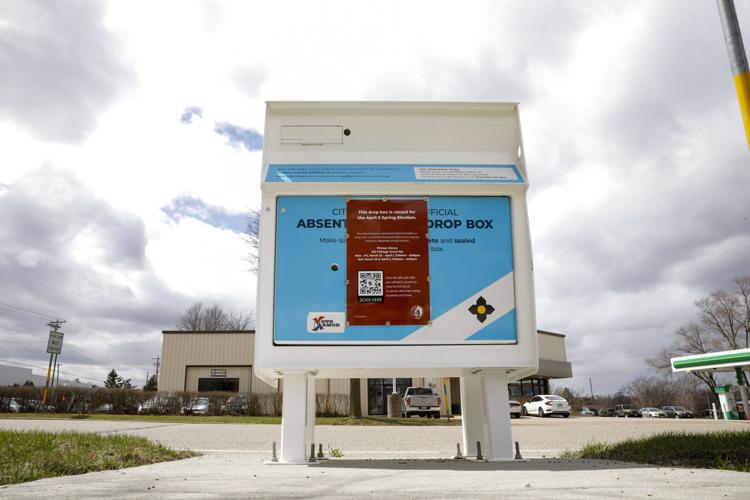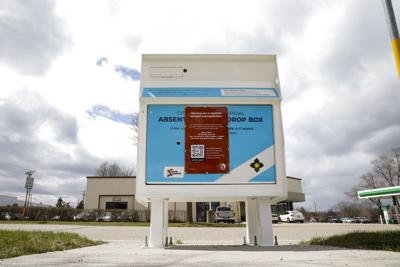In the latest development of an ongoing battle over absentee ballot drop boxes, Wisconsin Attorney General Josh Kaul said he is calling on the state Supreme Court to overturn a 2022 ruling that said the boxes are illegal.
A court brief — filed by the Department of Justice — backs up an already-existing lawsuit claiming the state not does not, in fact, ban the use of ballot drop boxes.
Democratic Gov. Tony Evers' filed a supporting brief for the lawsuit on April 2.
The July 2023 lawsuit, filed by the group Priorities USA, a national nonprofit that supports Democrats, challenges the ruling from two years ago and urges the now liberal-leaning high court to reinstate the legal use of the boxes.
“Voting should be safe, secure and accessible — and drop boxes are. Unfortunately, the use of drop boxes has been swept into the broader and baseless attacks on our elections and our democracy,” Kaul said in a statement Thursday. “Through our filing, we’re arguing that Wisconsin law does not prohibit the use of drop boxes, and that clerks should be able to determine whether to offer this convenient method of voting in their communities.”
The 2022 ruling came from a conservative-leaning bench that has been flipped ideologically since liberal Justice Janet Protasiewicz won the most expensive Supreme Court election in Wisconsin history in 2023.
The state Supreme Court is set to hear oral arguments beginning in May in the case. Priorities USA had originally filed the lawsuit with a lower court, but a Dane County judge has said she doesn’t have the power to overturn the 2022 ruling. An appeal of her decision quickly bumped the lawsuit up to the state Supreme Court.
Kaul’s 37-page brief filed this week supports the group’s stance that the locked receptacles for Wisconsin voters to securely deposit their signed absentee ballots do not violate state law.
The use of the boxes isn’t new but took on a new popularity during the COVID-19 pandemic when voters sought out the depositories as a means of avoiding crowded polling places.
By spring 2021, a total of 570 boxes were present in 66 of the state’s 72 counties, according to the brief.
Kaul argues that using drop boxes is well within the rights of election clerks who are allowed by the state to “select tools to facilitate the administration of elections.”
“Drop boxes are no different. They are simply another tool to facilitate elections administration within the province of municipal clerks to authorize,” the brief reads.
The contestation of drop boxes has been a central piece of former President Donald Trump’s false claims of election fraud during the 2020 presidential election.
An investigation by the Associated Press found that none of the 40 states that use ballot drop boxes reported voter fraud or stolen ballots linked to the boxes.
In a dissenting opinion against the state Supreme Court’s 2022 ban of the boxes, Justice Ann Walsh Bradley — who announced earlier this month she will not run for reelection — called the outlawing of the boxes a “rank distortion” of the law, sharing Kaul’s interpretation that the ballot boxes are simply an extension of the clerk’s office.

Wisconsin Supreme Court Justice Ann Walsh Bradley raises her fist in support of the swearing-in of Justice Janet Protasiewicz at the state Capitol Building on Aug. 1. Walsh Bradley had argued against a ban on absentee ballot drop boxes.
“A drop box is set up by the municipal clerk, maintained by the municipal clerk, and emptied by the municipal clerk,” Walsh Bradley wrote. “This is true even if the drop box is located somewhere other than within the municipal clerk's office.”
This case before the Supreme Court is not the only lawsuit challenging the 2022 ruling.
A group of Wisconsin voters previously filed a lawsuit challenging the banning of the boxes as a discrimination against voters with disabilities who might not be able to reach a clerk’s office to turn in an absentee ballot but could access a drop box.
Last week, yet another lawsuit was filed by a group of Wisconsin voters with disabilities calling on the state Supreme Court to allow the use of electronic absentee ballots so that these voters might be able to vote on their own without requiring the help of an assistant.
With arguments in the Priorities USA lawsuit slated to begin May 13, a file ruling from the high court may be issued mere weeks before the state’s August state primary.








